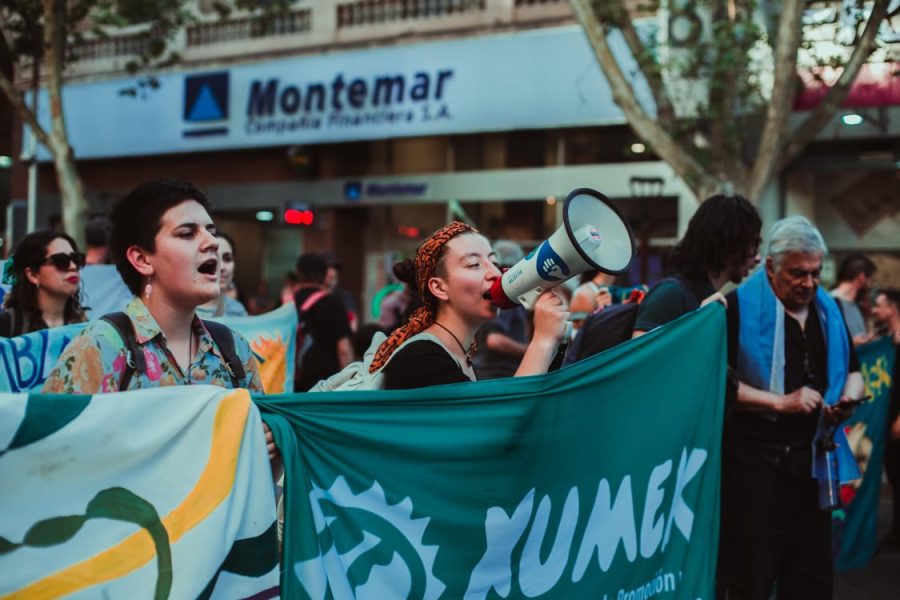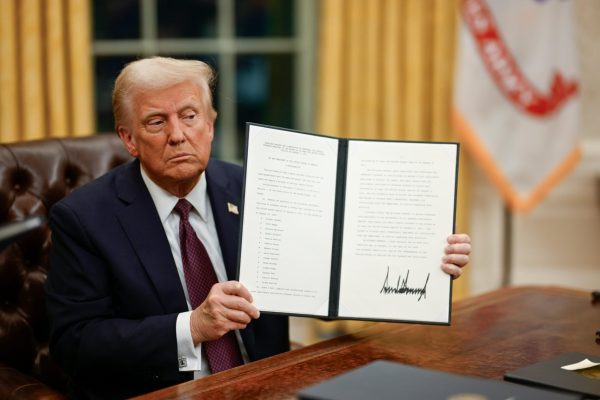Why Should Young People Be More Involved in Climate Action?
Climate change is an undeniable fact.
According to the United Nations (UN) “Greenhouse gas concentrations are at their highest levels in 2 million years” but what does it mean? It means that emissions are rising and consequently, “The last decade (2011-2020) was the warmest on record.”
Antonio Guterres, the UN General secretary said, “My generation has largely failed until now to preserve both justice in the world and to preserve the planet.”And he is totally right, there are entire communities without access to potable water, suffering from drought and uninhabitable temperatures, destroyed by the logic of extractivism.
We, as young people, must think that if we want to live on this planet, taking action against climate change and environmental injustices is more than necessary. It is not only about decreasing the greenhouse concentrations. It’s fighting against environmental issues that affect people in different ways according to their class, race, gender and the place that they live.
Some of the consequences of climate change that the UN affirms are: water scarcity, hotter temperatures, catastrophic storms, increased drought, a warming rising ocean, severe fires, loss of species, melting polar ice, not enough food, more health risks, flooding, poverty and displacement. The earth is a system, so everything is connected, and we have to take in mind that if one variable changes, all the others are going to be affected.
So what can we do in these conditions?
We can take action and demand that governments and big companies follow the advice that the IPCC scientists have been saying for several years! Some really good tools that help us are international agreements such as the Paris Agreement and other global frameworks like The Sustainable Development Goals and The UN Framework Convention on Climate Change.
The Paris agreement establishes in the 2nd article “the principle of common but differentiated responsibilities and respective capabilities, in the light of different national circumstances.” This principle is really helpful because it makes visible the importance of the differentiated responsibilities. According to the UN, “The 100 least-emitting countries generate 3 percent of total emissions. The 10 countries with the largest emissions contribute 68 percent.” Then logically the responsibilities should be and are different.
Talking about action, there are three broad categories of action: cutting emissions, adapting to climate impacts and financing required adjustments.
These are the general categories on which we must base our claims and actions but we all must feel like agents of change and work collectively. In my experience as an environmental and feminist militant, I can say that “when we are together, we are stronger and we can change things.” In Mendoza, Argentina, the province where I was born and where I live, in 2019 thousands of people protested in the streets and in front of the Congress for a week defending the law that protects Mendoza’s water from mining companies. The outcome of this protest was the protection of that law.
This example is just a demonstration, among others, of the power that we have when we fight together and how we can win rights and change reality.
We are living in a climate crisis, all of us are suffering in different ways and we should take action now! Taking action against environmental injustice is taking action for social justice. As Julian Agyeman said, “Wherever in the world environmental despoliation and degradation is happening, it is almost always linked to questions of social justice, equity, rights and people’s quality of life in its widest sense.”
Climate action now is necessary and urgent. We need to realize that the earth, our environment, is the place where we exist and if it is affected, we are affected. We have to analyze how environmental issues affect every region, in every country. The most affected people are Black people, indigenous people, women, LGBTQI+ people, children and older people. Fighting with and for them is more than necessary.
The environmental movement in the world is strong and the youth environmental movement continues to grow. Do you want to be an environmentalist with us or are you going to sit idly by allowing others to destroy our land and the lives of thousands of people?
Ariadna Camila Fajner Correa is a student of law in the National University of Cuyo, Mendoza – Argentina. She is a militant in the NGO “Xumek for promotion and protection of Human Rights” and in the environmental movement “Fridays for future”.
References
- Climate Change. (s. f.). United Nations. https://www.un.org/en/climatechange
- Paris Agreement. (s. f.). https://unfccc.int/sites/default/files/resource/parisagreement_publication.pdf
- 2020 was one of three warmest years on record. (s. f.). World meteorological Organization. https://public.wmo.int/en/media/press-release/2020-was-one-of-three-warmest-years-record
- Agyeman, “Toward a ‘just’ sustainability?” J of Media & Cultural Studies, 22, no 6, pp 751-756, Dec 2008.
- Thomas, “Why every environmentalist should be anti-racist.” Vogue, June 8, 2020.








